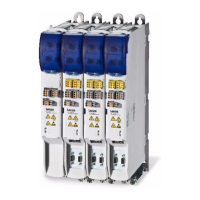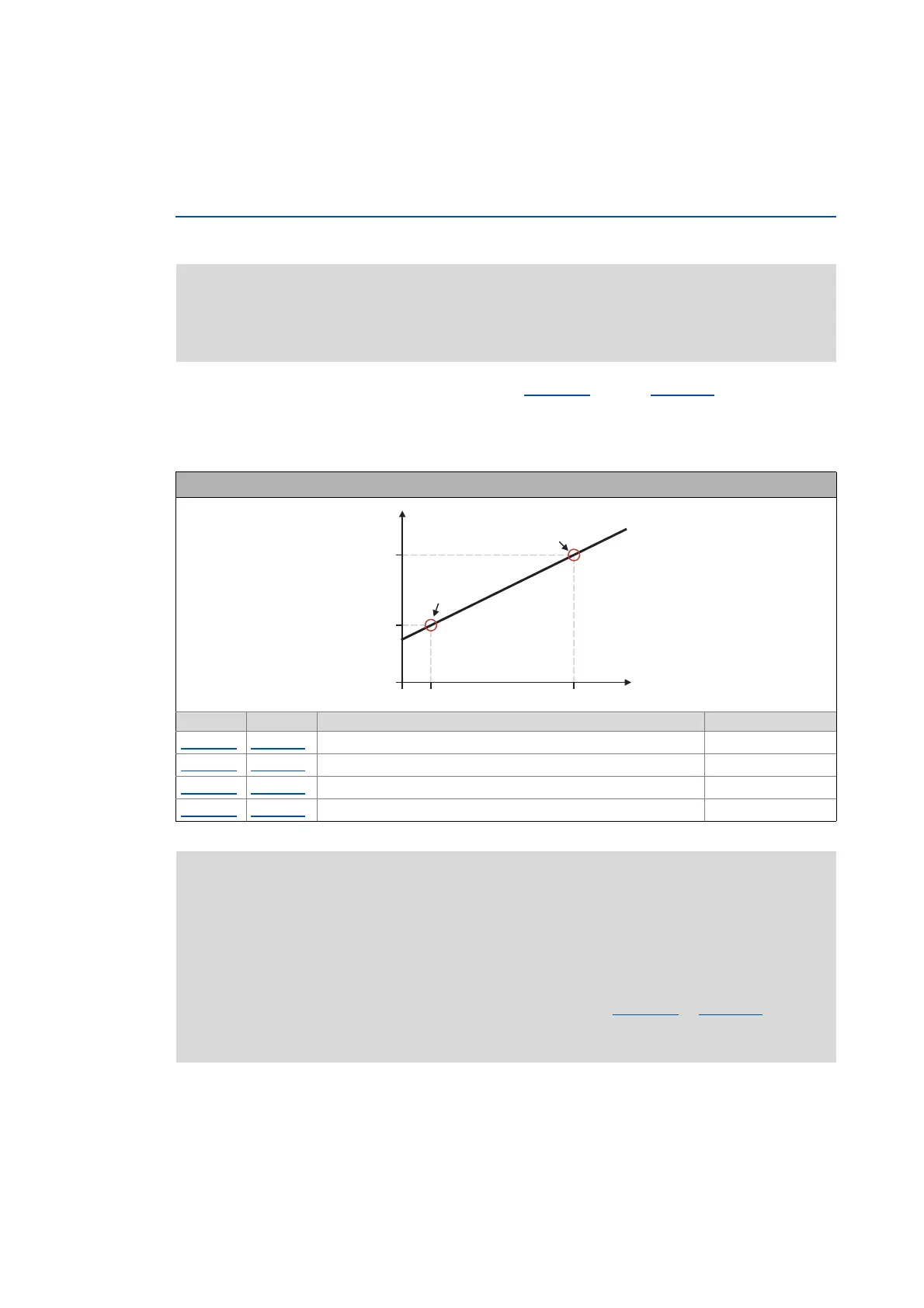8 Monitoring functions
8.5 Motor temperature monitoring
268
Lenze · i700 servo inverter · reference manual · DMS 3.0 EN · 06/2016 · TD06
_ _ _ _ _ _ _ _ _ _ _ _ _ _ _ _ _ _ _ _ _ _ _ _ _ _ _ _ _ _ _ _ _ _ _ _ _ _ _ _ _ _ _ _ _ _ _ _ _ _ _ _ _ _ _ _ _ _ _ _ _ _ _ _
8.5.1 Spec. charact. curve for motor temperature sensor
This function extension is available from version 01.03!
If required, you can define and activate a special characteristic for the motor temperature sensor.
• The special characteristic is activated by setting 0x2D49:1
= "3" (or 0x3549:1 ="3" for axis B).
• The special characteristic is defined based on two parameterisable sampling points. The two
sampling points define a line which is extrapolated to the right and to the left. In the Lenze
setting, the special characteristic is defined as follows:
Stop!
The implemented solution is not suitable as a replacement for a tripping unit for the
thermal protection of rotating electrical machines (EN 60947-8:2003)!
Lenze setting of the special characteristic
Axis A Axis B Description Lenze setting
0x2D49:6 0x3549:6 Sampling point - Temperature 25.0 °C
0x2D49:8
0x3549:8 Sampling point - resistance 1000 Ohm
0x2D49:7
0x3549:7 Sampling point - Temperature 150.0 °C
0x2D49:9 0x3549:9 Sampling point - resistance 2225 Ohms
Note!
• Selecting a motor from the motor catalogue causes the parameters of the special
characteristic to be overwritten!
• If the servo inverter measures a resistance of below 122 Ω, this is assessed as a sensor
error and a temperature of -666 °C is output.
• In individual cases, a short circuit is a wanted status (e.g. temperature contact, closed
below 140 °C). For this purpose, the sampling point 1 (0x2D49:8
or 0x3549:8 for axis
B) must be below 122 Ω to not trigger a sensor error anymore. The temperature is
continued to be calculated.

